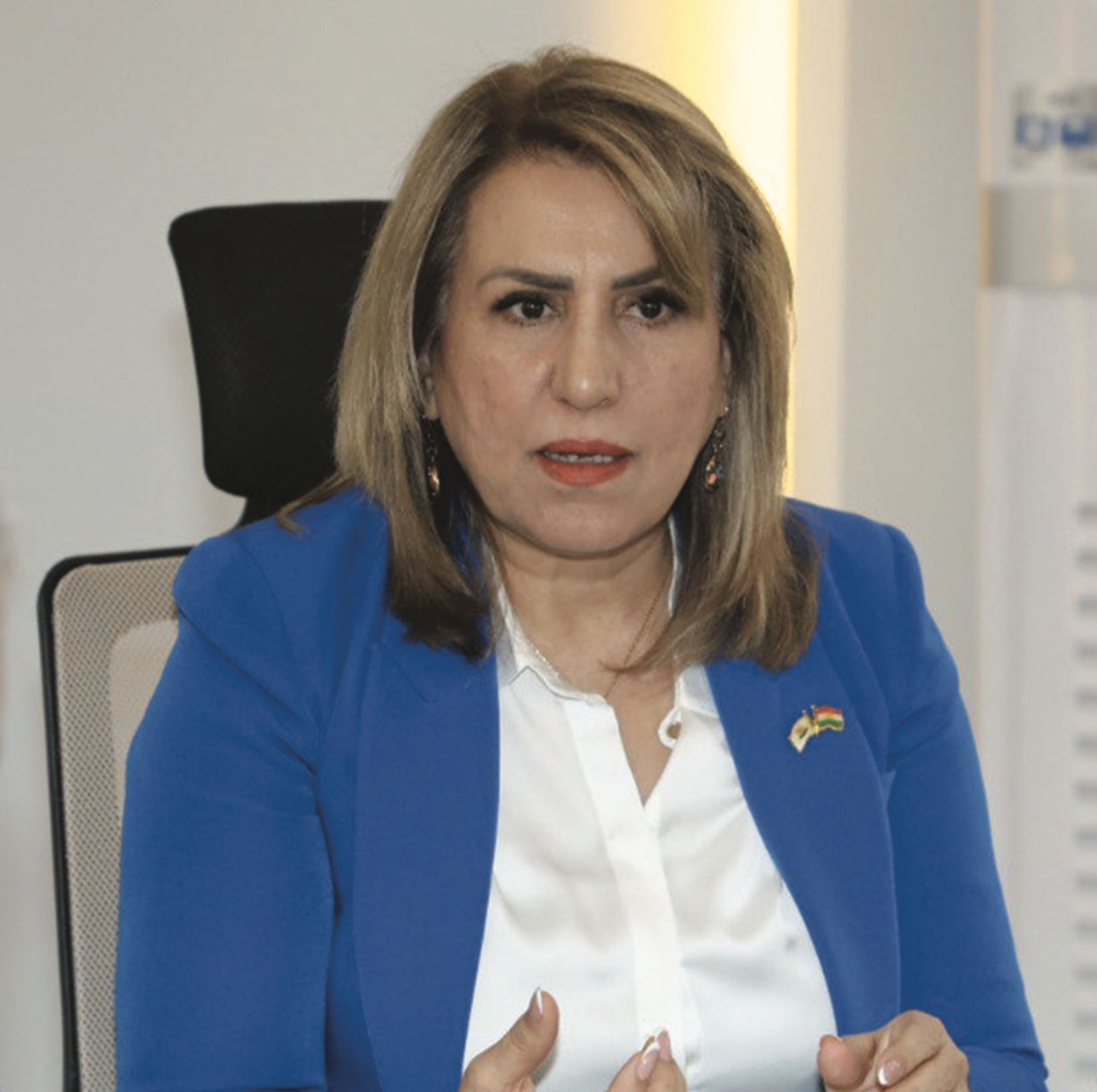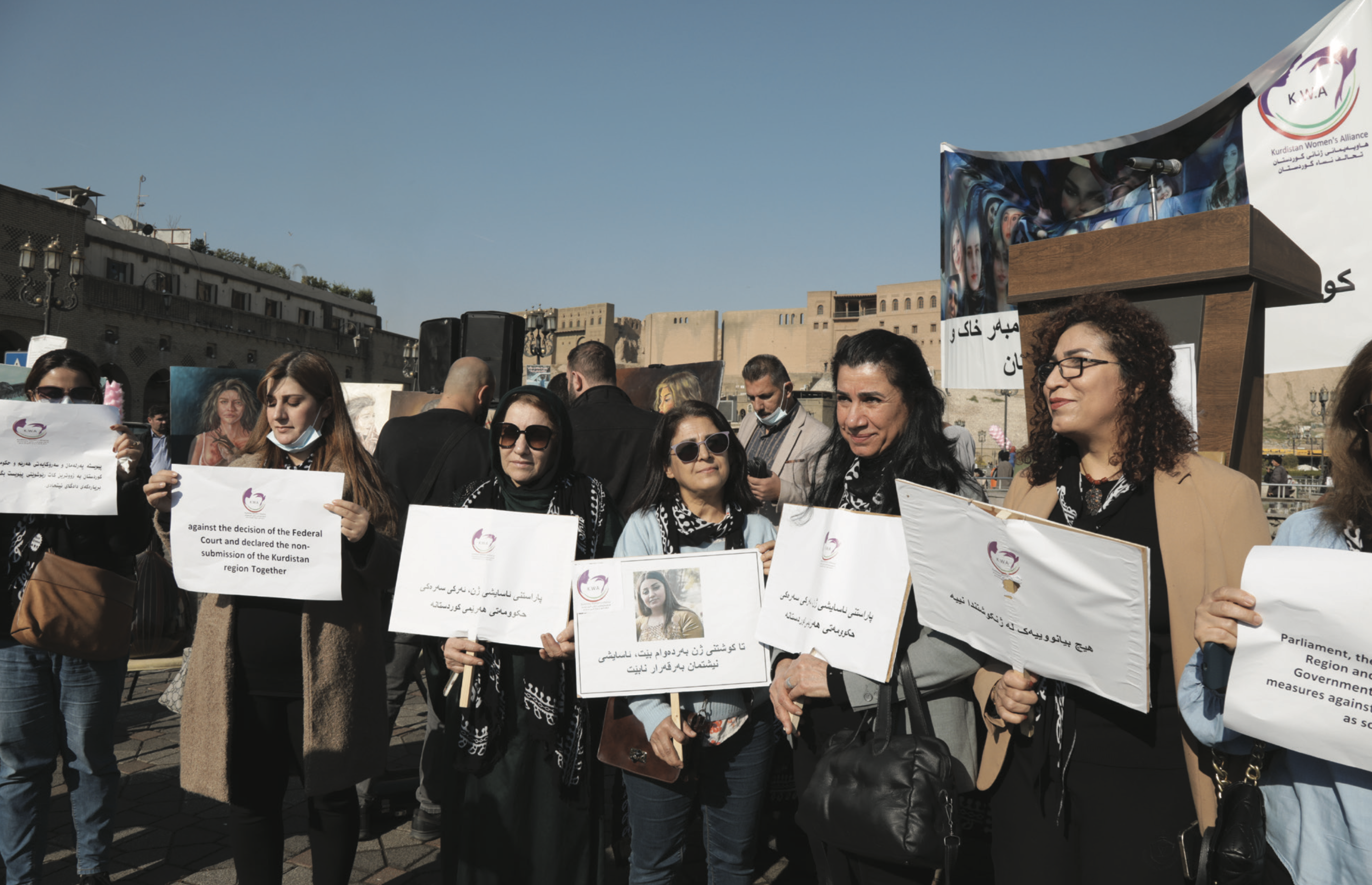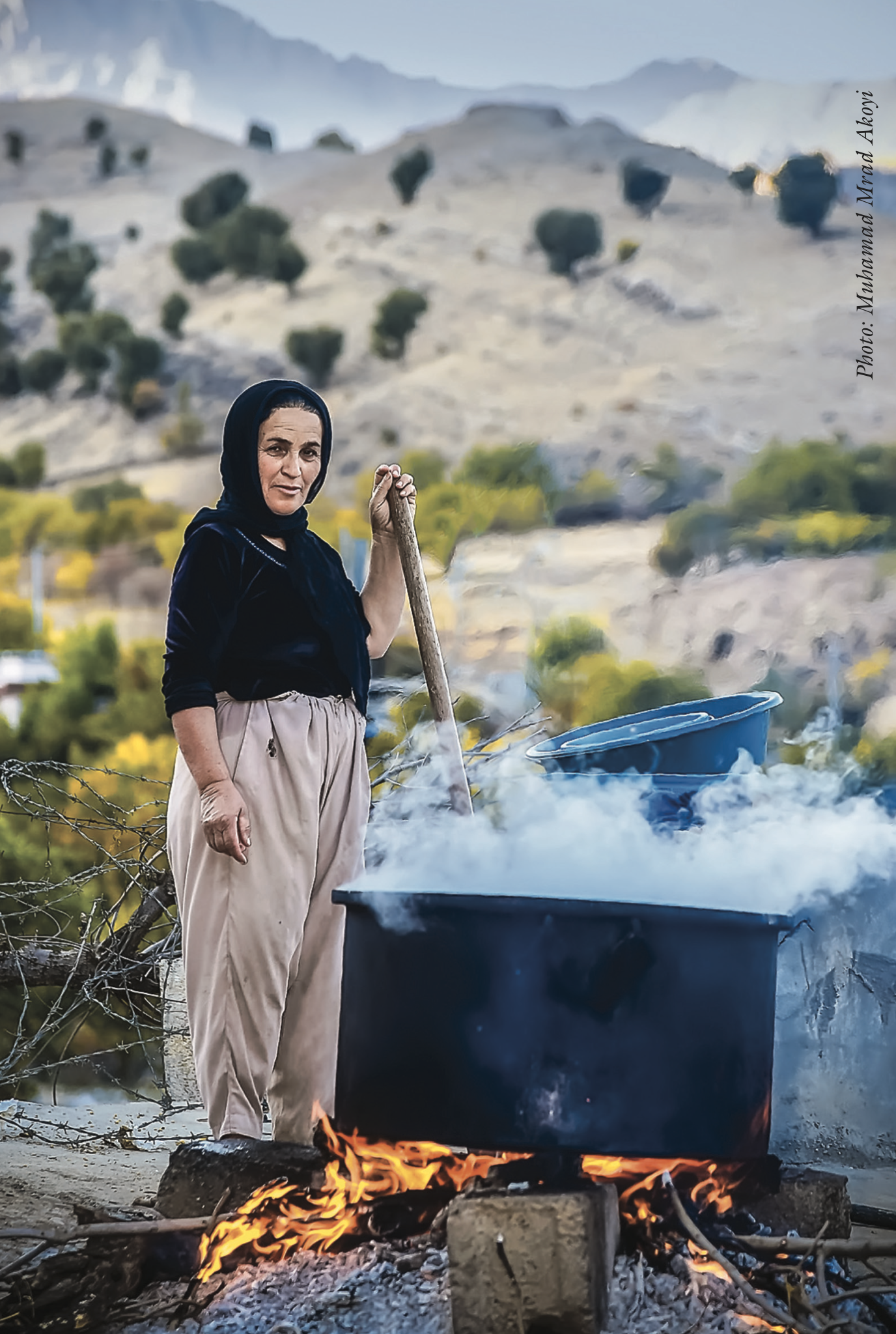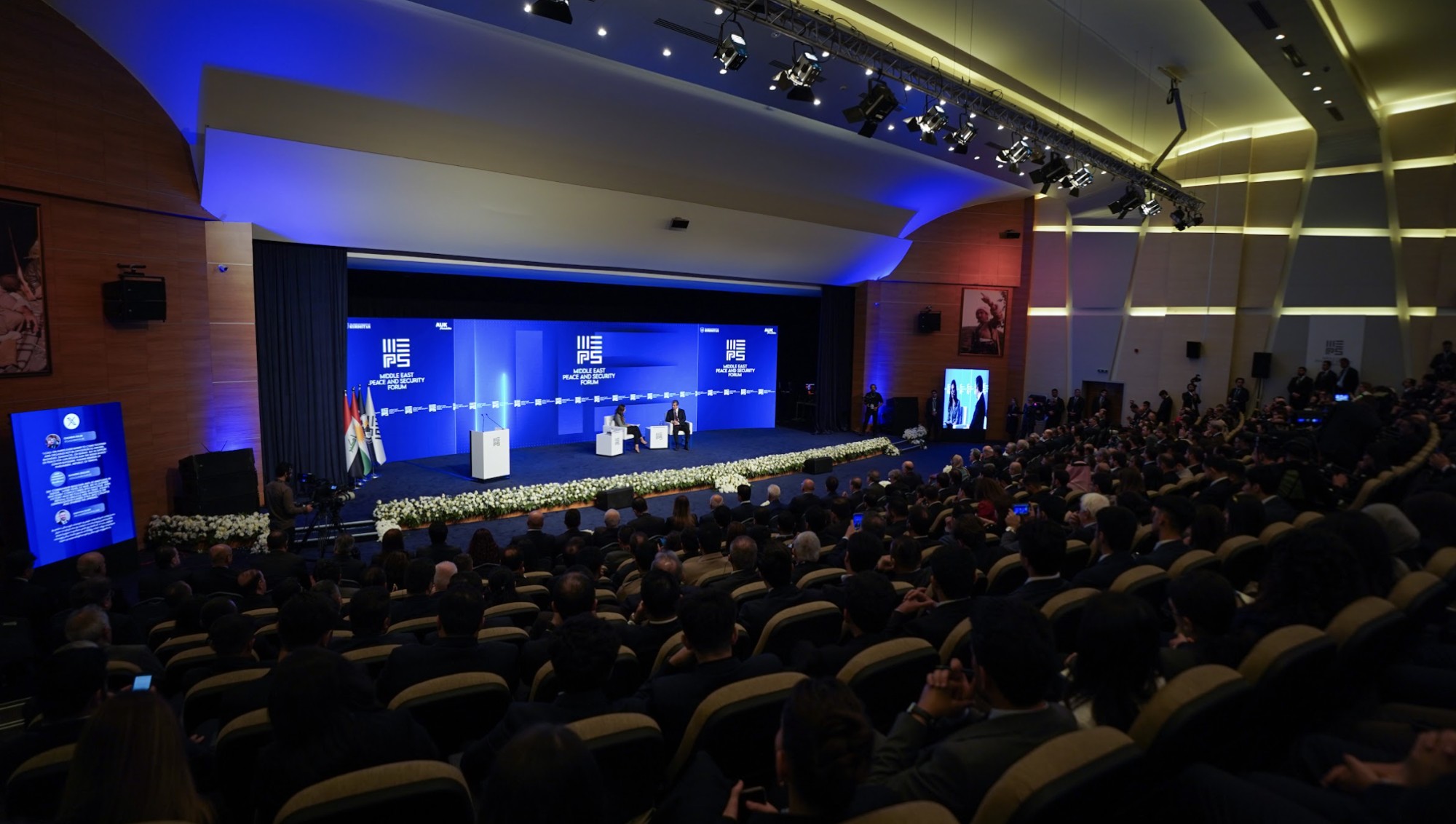In a thought-provoking interview with Kurdistan Chronicle, Dr. Khanzad Ahmed, Secretary General of the High Council for Women and Development (HCWD) in the Kurdistan Regional Government (KRG), discussed the accomplishments and initiatives that are shaping the landscape of women's rights and gender equality in the region. Dr. Khanzad's insights provide an understanding of the remarkable progress achieved under the leadership of Prime Minister Masrour Barzani's Ninth Cabinet.
Driving change: the High Council for Women and Development's role in empowerment
At the heart of the Kurdistan Region's transformation to achieve gender equality lies the HCWD, a multifaceted institution that serves as the cornerstone for progress. With its roles encompassing coordination, advisory guidance, technical expertise, monitoring, and policy formulation, the HCWD has emerged as a vital force driving change. “Our achievements stem from a practical approach, responding to the needs of society and translating them into actionable decisions, laws, plans, and programs,” said Dr. Khanzad.

Dr. Khanzad Ahmed, Secretary General of the High Council for Women and Development (HCWD)
Concrete milestones
Several noteworthy accomplishments underscore the tangible progress made in advancing gender equality:
Enhancing safety: registered SIM cards
One pivotal achievement has been addressing the security implications of unregistered mobile phone SIM cards, as Dr. Khanzad explained: “Through consultations with women, civil society organizations, and government agencies, we identified the risks associated with unregistered SIM cards. This led us to advocate for a decision that mandates mobile companies register their customers, bolstering safety measures for women and girls.”
She highlighted that this measure not only enhances personal security but also promotes the overall empowerment of women. By ensuring that communication remains a safe and accessible avenue, women are better equipped to pursue education, seek employment opportunities, and engage in civic participation. The registered SIM card initiative, while addressing a seemingly technical aspect, contributes significantly to the broader landscape of gender equality.
Economic empowerment: labor law reforms and inclusive growth
A commitment to fostering women's economic inclusion prompted significant labor law reforms, about which Dr. Khanzad elaborated: “Recognizing the importance of creating an environment conducive to women's participation in the private sector, the labor law reforms sought to dismantle barriers hindering women's engagement. This endeavor has contributed to fostering a more inclusive and vibrant economic landscape.”
The reforms underscore the government's recognition of the essential role that women play in economic growth and stability. By breaking down barriers that impede women's participation, they pave the way for a diversified and dynamic workforce. As she pointed out, this strengthens the economy and empowers women to contribute their skills and talents to the nation's progress.

Safeguarding security: a modern framework for gun control
In collaboration with the Ministry of Interior, the KRG also embarked on a comprehensive overhaul of laws related to weapons possession. “Acknowledging the adverse impact of unregulated firearms on personal security, we set out to replace what are outdated laws with a modern framework. These new laws, which restrict both civilians and security personnel from carrying weapons, have significant implications for overall security,” Dr. Khanzad clarified.
The modernization of gun control laws is a testament to the government's commitment to creating a safe and secure environment for all citizens. By curbing the proliferation of unlicensed firearms, the KRG is significantly reducing incidents of violence and creating a more stable society. She emphasized that this measure particularly resonates with women and families, who often bear the brunt of the consequences of weapons-related violence.
Global commitment: aligning with UN Resolution 1325
The Kurdistan Region's commitment to global women's rights standards found expression in a comprehensive plan aligned with UN Security Council Resolution 1325 on Women, Peace, and Security. “Our plan focuses on the rehabilitation of survivors of conflicts and crises, while simultaneously enhancing the capacity of government institutions to assist displaced women and girls, thereby contributing to sustainable peace,” Dr. Khanzad explained.
This alignment with international principles reflects the KRG's dedication to creating a society where the impact of conflict is mitigated, and the resilience of women is harnessed. By focusing on rehabilitation and empowerment, the plan recognizes the multifaceted challenges faced by women in conflict-affected areas. The head of the HCWD stressed that this approach not only addresses immediate needs but also lays the foundation for long-term stability and progress.
Prime Minister Barzani's vision: a catalyst for women's empowerment
The Ninth Cabinet, under the astute leadership of KRG Prime Minister Masrour Barzani, has demonstrated a resolute commitment to women's rights. “Prime Minister Barzani's recognition of women's pivotal role and his emphasis on their active participation have created an environment conducive to supporting our initiatives,” Dr. Khanzad underscored.
Prime Minister Barzani's vision resonates deeply with the principles of inclusivity and equality. His recognition of the importance of women's contributions to every facet of society reveals the government's determination to foster an environment where women are not only beneficiaries but active agents of positive change. Dr. Khanzad highlighted that this commitment sends a powerful message, both domestically and internationally, that gender equality is a fundamental tenet of Kurdistan's progress.

Paving the way: a five-year blueprint for gender-responsive governance
In the pursuit of gender-responsive governance, the HCWD has devised a comprehensive five-year plan, collaboratively developed with ministries and the World Bank. “Our focus is on integrating women's demands into ministry plans and budgets, promoting an inclusive approach to policy formulation that addresses the unique needs of women,” said Dr. Khanzad.
The five-year plan represents a strategic roadmap towards integrating gender considerations across all aspects of governance. Dr. Khanzad noted that this approach recognizes that gender-responsive policies are not an isolated endeavor but a holistic transformation that permeates every level of decision-making. By incorporating women's perspectives into budgeting and planning, the KRG is taking a crucial step towards ensuring that women's needs and priorities are prioritized and integrated into the fabric of governance.
Mitigating violence: strengthening legal protections and support mechanisms
In addressing urgent issues related to violence, Dr. Khanzad elaborated on the prohibition of unlicensed firearms, stating, “Our aim is to curtail incidents of violence by restricting access to unregistered firearms, thereby contributing to overall security and the well-being of women and society at large.”
The prohibition of unlicensed firearms reflects the government's commitment to safeguarding the well-being of its citizens. By enacting measures to prevent the misuse of weapons, the KRG is sending a clear message that violence, particularly gender-based violence, will not be tolerated. The head of the HCWD stated that this measure aligns with international efforts to create safe environments for women and contributes to fostering a culture of respect and security.
Advocating for equality: elevating the voices of Yezidi women
The HCWD's commitment to advancing the cause of Yezidi women is reflected in its integration within the Sinjar (Shingal) agreement. “Our focus extends to inclusion, protection, and prevention measures that align with international principles on women, peace, and security, paving the way for a more secure and equitable future,” said Dr. Khanzad.
The integration of women's perspectives within the Sinjar agreement is a testament to the KRG's commitment to addressing the unique challenges faced by marginalized communities. Dr. Khanzad added that the focus on inclusion recognizes that women's voices are essential in shaping policies that directly impact their lives. By advocating the Yezidi cause, the KRG not only demonstrates solidarity but also sets a precedent for inclusive governance that resonates beyond its borders.
Amending domestic violence law: a step towards enhanced protection
Proposed amendments to the Domestic Violence Law are deeply rooted in contemporary realities. “Our amendments aim to enhance the law's effectiveness by incorporating specialized courts, criminalizing various forms of violence, and establishing robust support mechanisms for survivors, thereby strengthening the legal framework for safeguarding women's rights,” Dr. Khanzad clarified.
The proposed amendments reflect a commitment to continuous improvement and adaptation to evolving societal dynamics. Dr. Khanzad pointed out that the amendments not only enhance legal protections but also send a message that violence against women will not be tolerated. By establishing specialized courts and support mechanisms, the KRG takes a proactive stance in addressing domestic violence, empowering survivors, and holding perpetrators accountable.
A collective endeavor: the path forward
The efforts of Kurdish women underscore the collective nature of progress. “Our journey towards gender equality is an endeavor that requires the concerted efforts of individuals, political parties, organizations, and state institutions. It calls for continuous education, comprehensive training, and a steadfast commitment to the cause,” Dr Khanzad said.
She proudly cited a central tenet of the current KRG cabinet, led by Prime Minister Masrour Barzani, which declares, “we will stand against any forms of discrimination and attempts to minimize the role of women in society. It is vital that women are permitted to make a full contribution to the community, the economy, and within the political arena.” She views this principle as a cornerstone of their governmental work.
Dr. Khanzad's sentiments encapsulate the essence of the Kurdistan Region’s journey towards gender equality, which is marked by collaborative determination, visionary leadership, and an unswerving commitment to justice and inclusivity. As the KRG continues to champion women's rights and advance gender equality, it is laying the foundation for a future where every individual, regardless of gender, can flourish and contribute to the nation's advancement. The significant strides taken thus far stand as a testament to the region’s resilience and its aspiration to shine as a beacon of progress for the Middle East and world.

